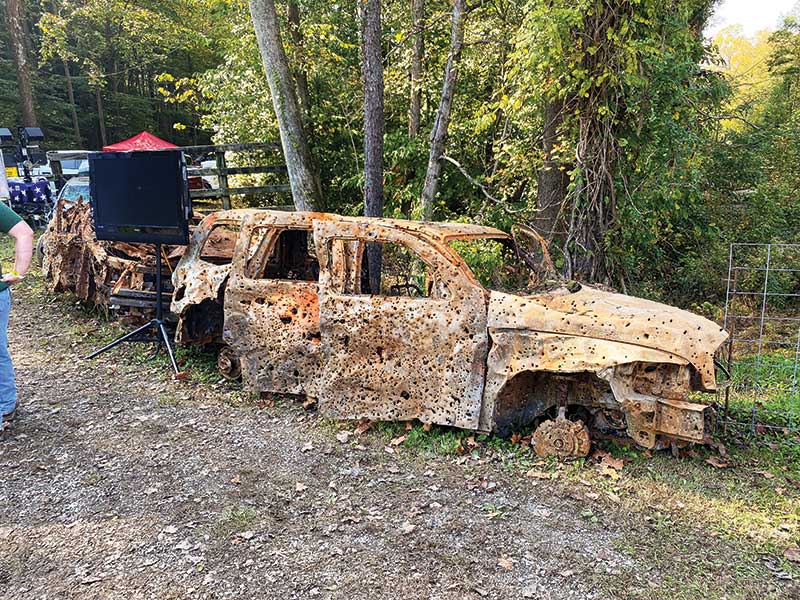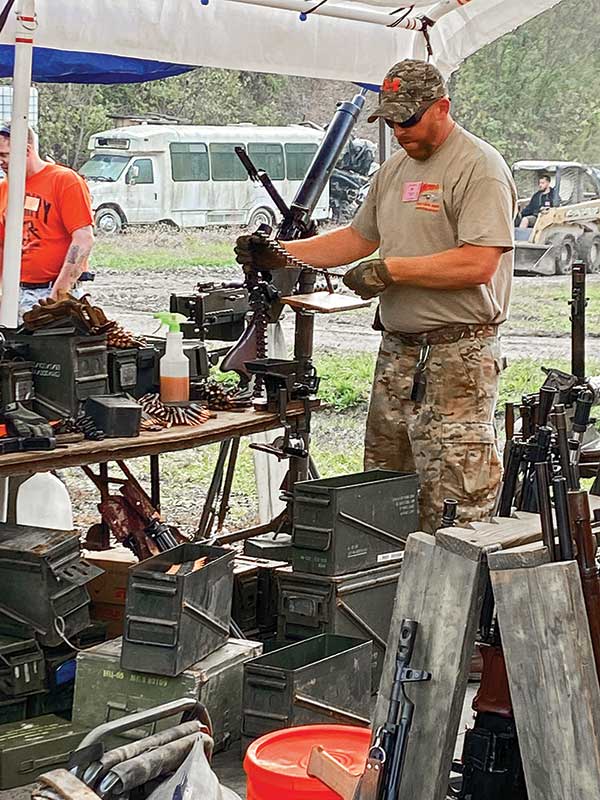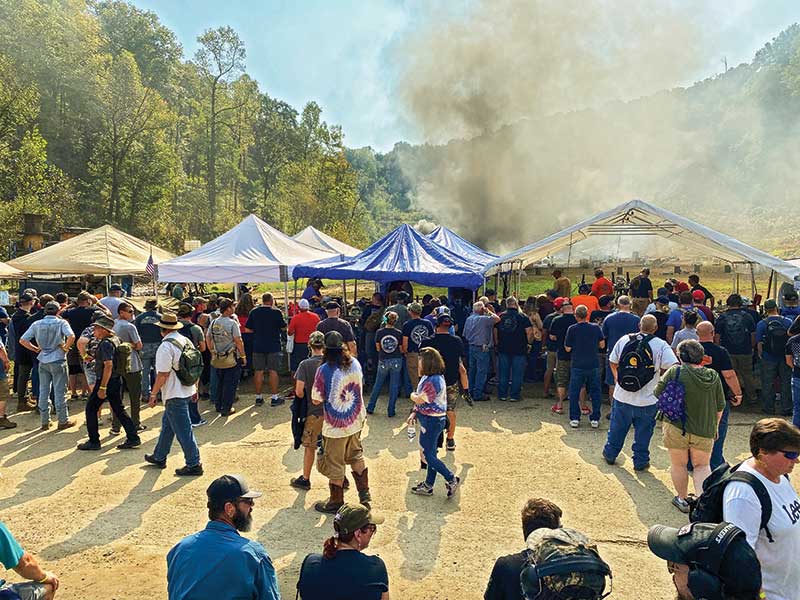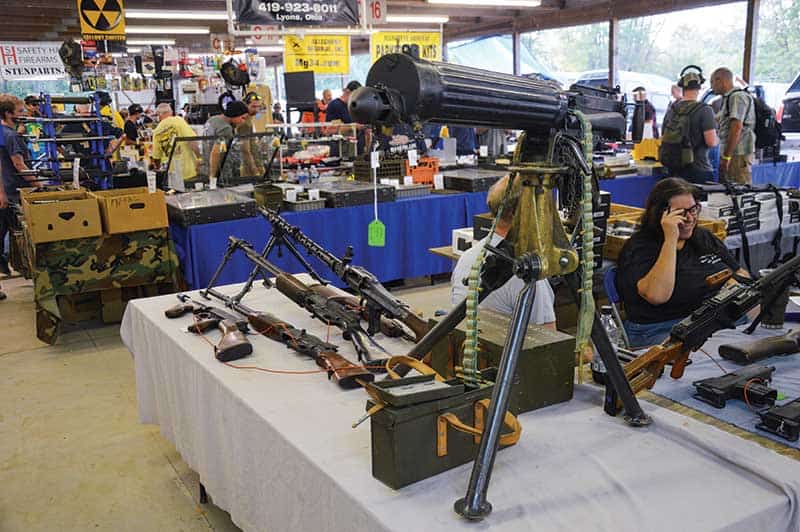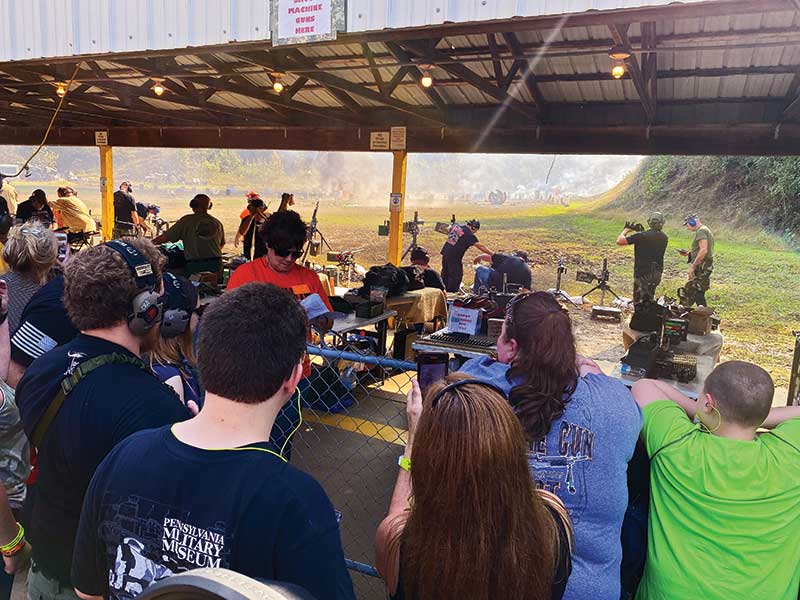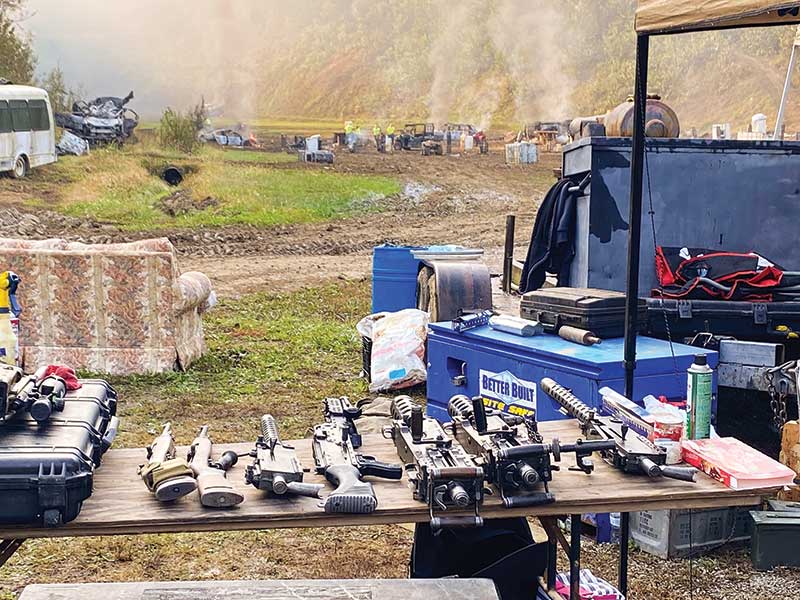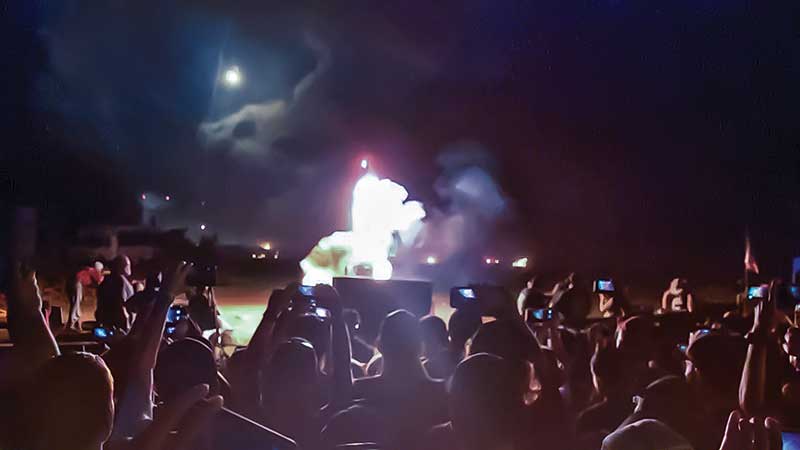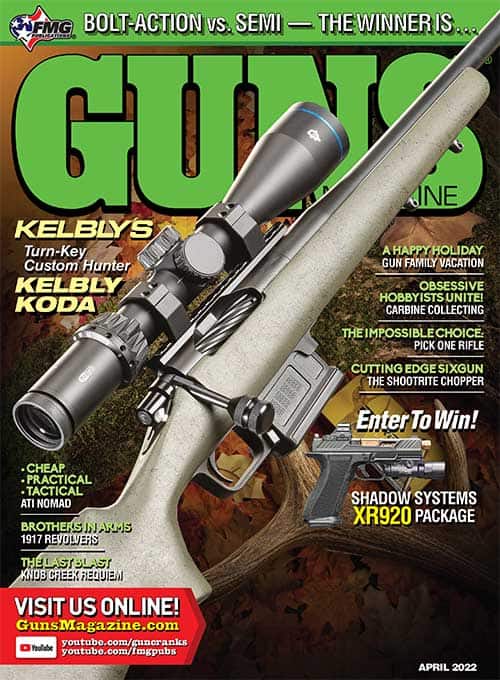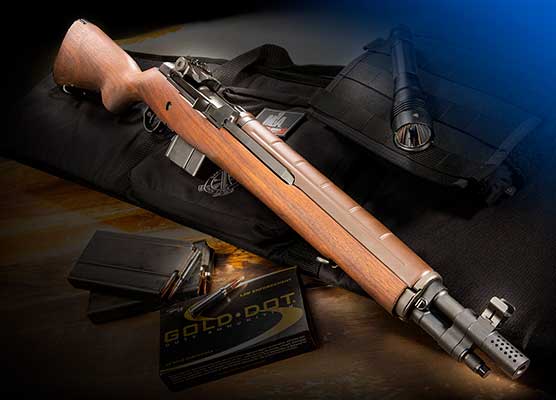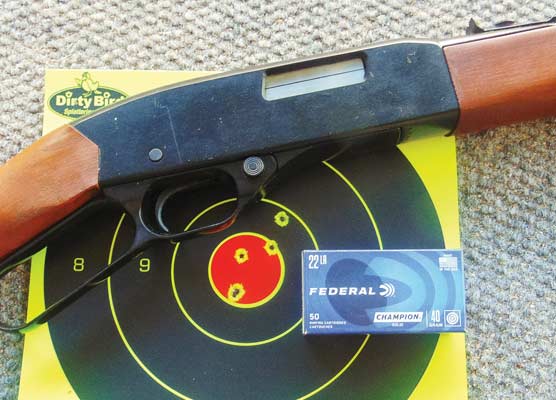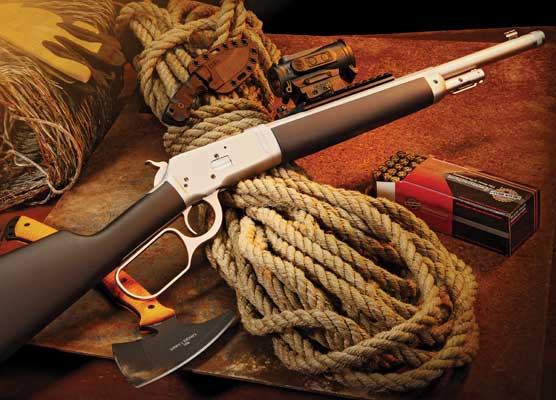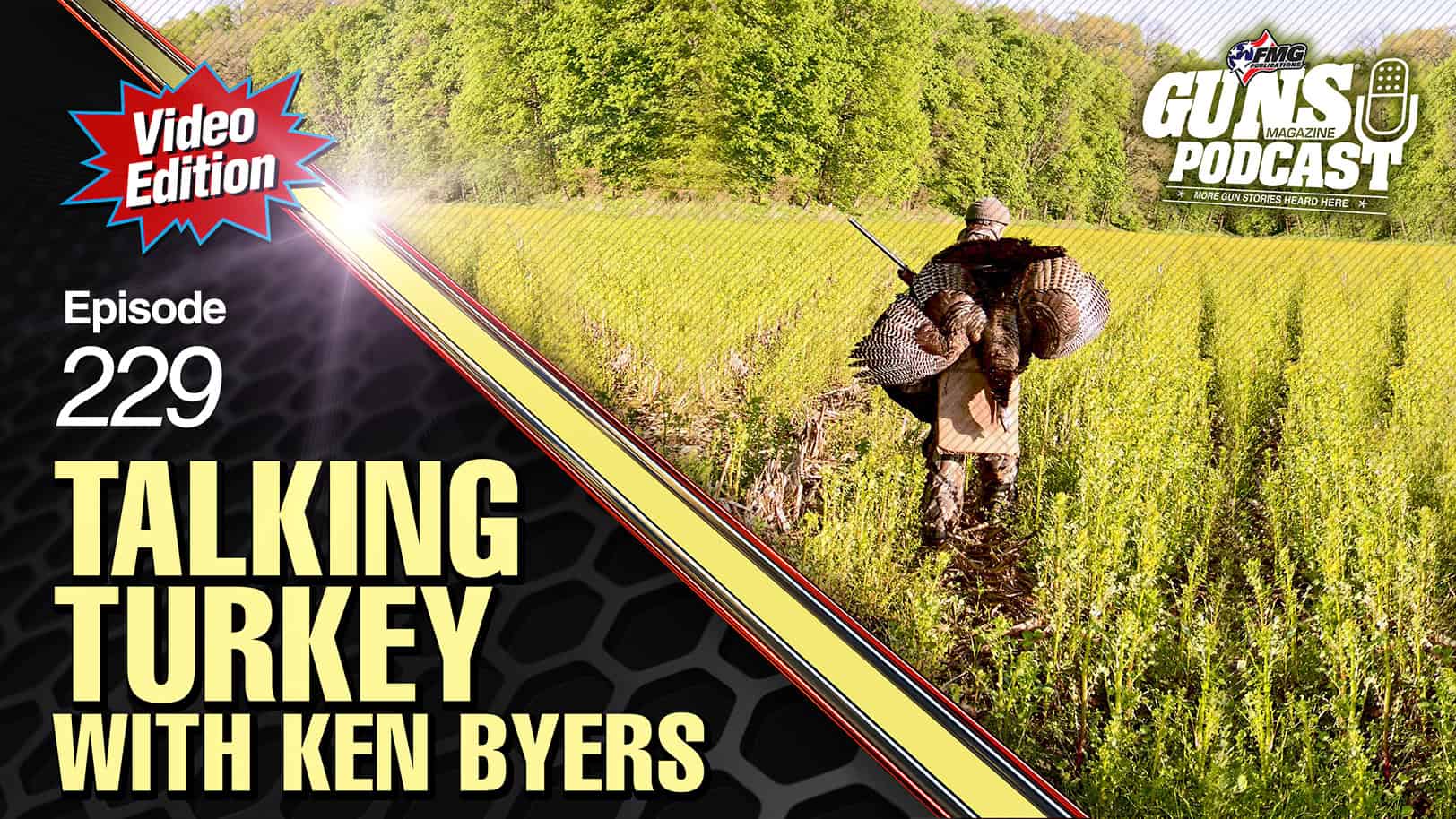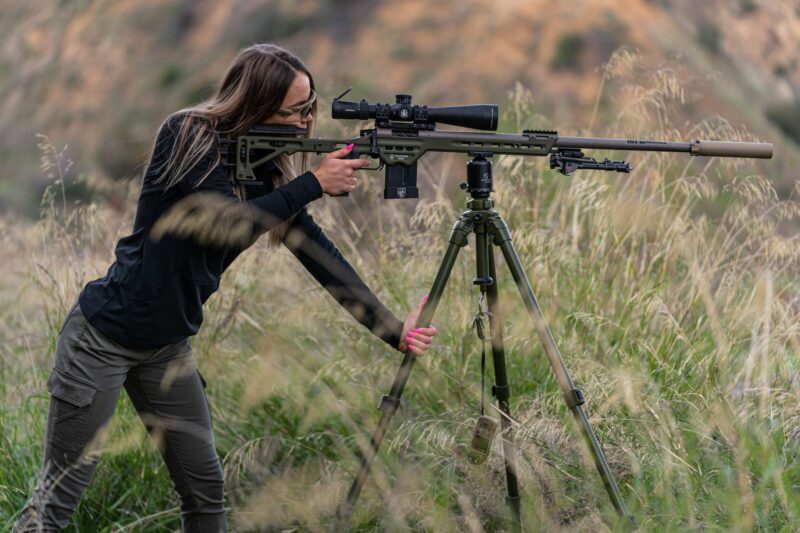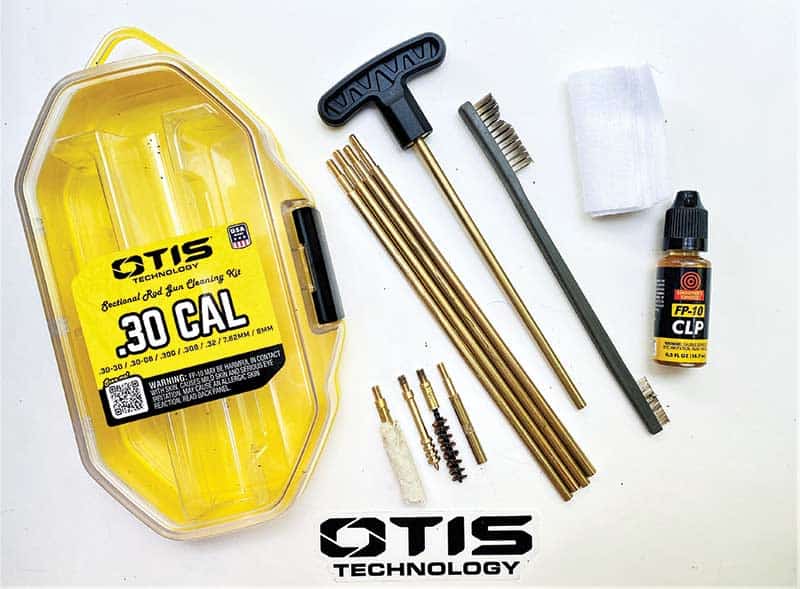The Knob Creek
Machine Gun Shoot
Requiem for an All-American Tradition
It’s all over now, but for 50 years the machine gun shoots held at Knob Creek Gun Range in West Point, Ky., were wildly popular with full-auto enthusiasts and spectators alike. If 20th century military guns — especially machine guns — were your thing, the Knob Creek event was the place to be.
Machinegun people are a tiny subset of the gun community. For them, the event was also a grand social affair and an opportunity to show off to both their peers and the spectators on the firing line. Visitors, everyone from grandmothers to toddlers, would don hearing protection and crowd the waist-high security fence 20 feet behind the firing line to watch. I have no doubt at least one example of every machine gun ever produced was shot on that line at one time or another.
Buyers And Sellers
When I started attending about 15 years ago, spots on the firing line and even vendor tables were nearly impossible to get. They were so coveted, rumors claimed they had to be inherited. Whether you needed a transferable MP5 submachine gun, demilled parts kit for a M1910 Russian Maxim water-cooled machine gun, breech block for a World War II M3 anti-tank gun, brand new Double Star AR, parts to restore a sporterized M1903 Springfield rifle or a cocking handle for a Colt “potato digger” machine gun, the “Creek” was where you were most likely to find it. This was the show where really amazing things showed up.
For example, I was helping at a friend’s table when an attendee walked by with a WWII tank flamethrower of the type fitted in the bow machine gun mount of an M4 Sherman. It was purchased on the spot for a couple hundred dollars. It seems impossible the seller could have walked through half the show without the rare treasure being snapped up, but it speaks to how intense these Knob Creek events were. The sheer quantity and variety of things for sale caused sensory overload. Combined with the heavy crowds, often shoulder-to-shoulder in the aisles, it was near impossible to see the whole thing in a 12-hour day.
Swiss On WRY
The first half hour of every hour was devoted to shooting up the scores of hard targets dragged out on the 300-yard range during the ceasefires. Many automobiles, old appliances, 55-gallon drums and boats, laboriously collected in the six months preceding each bi-annual event, were literally shot so full of holes they resembled sculptures rendered in grey Swiss cheese. Swiss cheese is not grey, but fire-charred metal is. To enhance the spectacle, the range staff expertly rigged some targets to explode and burn in a most impressive fireball and mushroom cloud fashion! Tracers sometimes set fire to others not so rigged.
The range always went hot with an abrupt and roaring din, which continued with unabated ferocity for several minutes before breaking down into more sporadic firing. With a hundred spots on the firing line, and a conservative average rate of fire of 800 rounds per minute, I estimate 25,000 rounds of ammunition could easily be used up in the first “mad minute” of a shooting session. I imagine it sounded like standing among the machine gun battalions on the Somme battlefield in World War I as they dished out murderous supporting fire.
Few outside of the military have ever seen belt-fed machine guns in action and virtually nobody gets to see vintage water-cooled heavy machine guns fired unless they seek out the experience. British soldiers sometimes used their Vickers heavy machine guns to boil water for tea. When the steam gets hot enough, it can’t be contained and jets out of various bushings and seals on the water jacket — its loud hiss, concealed during the din of gunfire, continuing as an epilogue long after the line goes cold
Gallery Of Carnage
In the early afternoon, after the range crew inspected the impact area and cleared it of hazards, the public was allowed to walk downrange and inspect bullet-riddled targets up close. The terminal effects of the bullets are fascinating but I wasn’t the only one looking for the hefty tungsten penetrators from .50 BMG armor piercing rounds frequently found, perfect and unscarred, laying on the ground where they ran out of steam. They make great center punches for metal work.
If you didn’t own a machine gun, you weren’t limited to watching and shopping. There were always various shooting matches for rifle, pistol or shotgun and visitors could rent a wide assortment of machine guns and shoot them under supervision on the lower range. If you desired a more tactical shooting experience, for $50 — which include the use of the range’s UZI and ammo — there was the Jungle Walk submachine gun course. It was a screaming deal and slots filled up fast.
The Knob Creek Gun Range is, and always has been, a family business, and the events reflected their traditional family values. Guys brought their wives and kids to the shoots and made a day of it. First-time visitors, especially if they were big city types, were often surprised when owner Kenny Sumner got on the PA system to welcome them personally and ask for their attention while a prayer was read followed by the national anthem. The “bombs bursting in air” was emphasized with coordinated cannon shots from the firing line. As respect was shown for God and country, nearly everybody stopped where they stood, took off their hats and listened in silence. I sometimes wondered if the few that didn’t were just obtuse, or genuine commie atheists. Perhaps it was a mix of both.
Gone Silent
While their epic machine gun events are over for good, as a local I can still enjoy the Knob Creek Gun Range for what it’s always been — a great outdoor range and one of the best gun shops in the country. I’m thankful I got to go to as many of their shoots as I did. I’m also thankful to the Sumner family, whose ceaseless toil in planning and preparations throughout the year made it possible for the rest of us to have such great, All-American weekends of gun fun.
